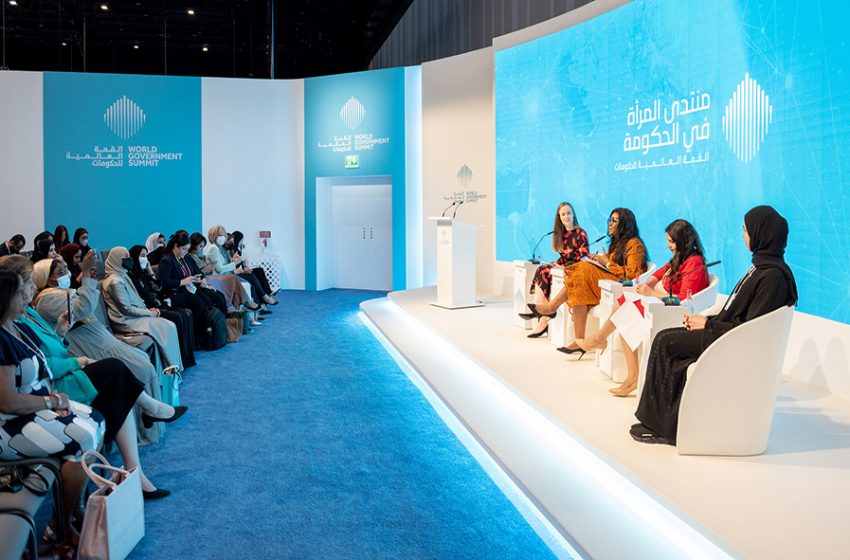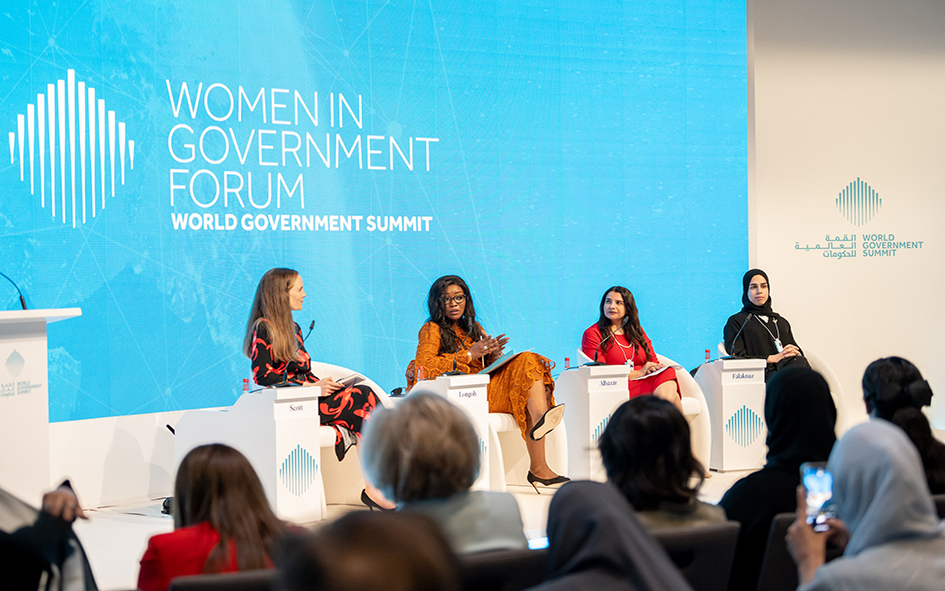Top-down approach can drive structural change for women, policymakers claim

- Closing session of Women in Government Forum at WGS 2022 focuses on empowering next generation of women
- Policymakers highlight success of top-down female empowerment schemes across public institutions
Dubai, 28 March 2022: Women leaders said today that empowering their next generation requires support from heads of state to enhance and protect women’s contributions to global society in the future.
Participants at the Women in Government Forum highlighted the success of top-down policies, such as quotas and targets, in increasing women’s participation in political life.
In the closing session of the Forum, taking place at the World Government Summit (WGS2022) in Dubai, Her Excellency Amina Longoh, Minister of Women, Family and Child Protection of Chad, Her Excellency Sahar Albazar, President of the Forum of Young Parliamentarians and Deputy Chair of the Foreign Relations Committee at the Egyptian House of Representatives, and Her Excellency Sara Falaknaz, Member of the UAE’s Federal National Council (FNC), explored the topic of ‘Passing On the Baton: Empowering the Next Generation of Women Leaders’.
Opening the discussion, H.E. Amina Longoh called for governments to safeguard gender balance with legislation. She said: “Governments must promote gender balance and equal opportunities. They have to not just bring women to the table to make decisions but also give them the means and support to deliver on their policies.”
For her part, H.E. Sahar Albazar highlighted the example of Egypt, whose president has played a crucial role in empowering women after they had been excluded from public life for decades. She said: “Our president is a believer in the empowerment of women. In 2017, Egypt launched its first National Strategy for Empowering Egyptian Women, which brings together policy, legislation, initiatives – such as capacity building programmes – and other campaigns to enhance the role of women in Egypt.”
Egypt’s track record now speaks for itself – women currently represent 28% in parliament, 14% in the Senate, 25% in the cabinet, 44% in the National Council for Human Rights, 56% in diplomacy roles, and 27% of deputy ministers.

Supporting both her fellow panellists, H.E. Sara Falaknaz highlighted the UAE government’s support for the inclusion of women in public life, crediting the 50% female representation quota for her place on the FNC. She said: “The right education system – like the one we have in the UAE – is fundamental to success and continued participation of women in society. Governments around the world should do more to create environments where women can succeed based on what is most appropriate for their cultures. This is what the UAE did, and all women in the country reap the benefits of this approach.”
The Women in Government Forum bringing together politicians, thought leaders, and practitioners to address the opportunities, challenges, and interventions needed to achieve gender parity in governments around the world.








